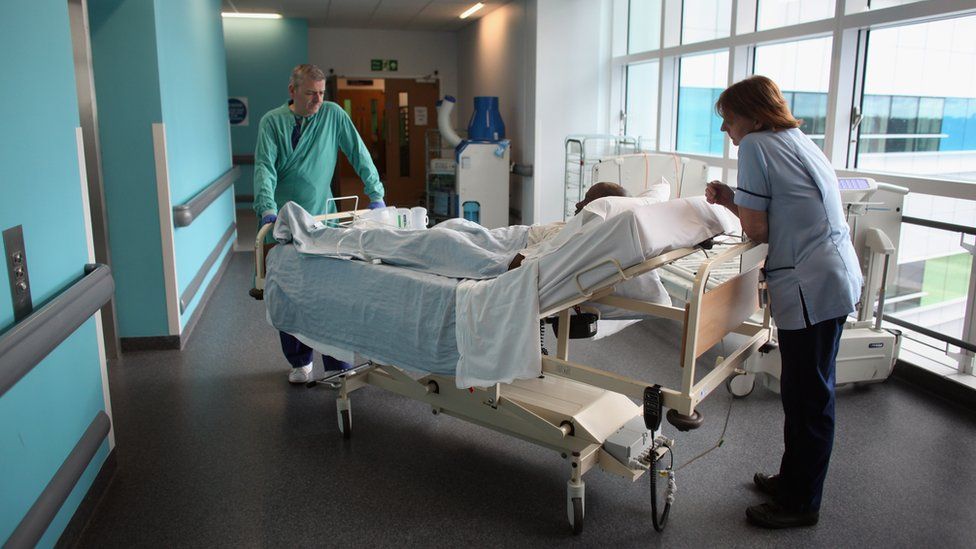NHS vacancies a 'national emergency'
- Published
- comments

The shortage of NHS staff in England has started worsening again, official figures show.
One in 11 posts is vacant with the situation particularly bad among the nursing workforce.
Experts described the situation as at risk of becoming a "national emergency" given the rising demands on the NHS.
It comes after sustained efforts by ministers and NHS bosses to tackle the shortages, including a new pay deal and recruitment and retention campaigns.
The latest figures have been published by the regulator, NHS Improvement, for the April to June period.
They showed:
- 11.8% of nurse posts were not filled - a shortage of nearly 42,000
- 9.3% of doctor posts were vacant - a shortage of 11,500
- Overall, 9.2% of all posts were not filled - a shortage of nearly 108,000
This is slightly worse than this time last year and comes after improvements at the end of last year and start of this year.
The difficulties facing hospitals, ambulances and mental health services mean spending on temporary staff is going over budget.
Tom Sandford, of the Royal College of Nursing, said the report painted a "bleak picture", pointing out that the number of nurse vacancies had risen by 17% in the past three months alone.
"The government must immediately investigate this sudden spike."
Siva Anandaciva, chief analyst at the King's Fund think tank, said the shortage of nurses was at risk of becoming a "national emergency".
Chris Hopson, head of NHS Providers, which represents NHS trusts, said services were "most worried" about the vacancies given the situation had started deteriorating.
He said the NHS was facing a "triple challenge" of increasing demand, growing workforce shortages and pressure on finances.
Alongside the workforce figures, the quarterly report showed that a deficit of £519m was being forecast for this year, although that is lower than it has been for the previous three years.
It comes as waiting-time targets for A&E and planned operations continue to be missed.
NHS Improvement chief executive Ian Dalton acknowledged that staff were working "extremely hard to cope".
But he said steps were being taken to relieve the pressure, including a concerted effort to get patients out of hospital more quickly with the help of services in the community.
And a Department of Health and Social Care spokesman praised "hard-working" staff and said despite the pressures the NHS was still providing "world class" care.
Alongside the pay rise, he also pointed out that the number of training places for doctors, nurses and midwives was increasing by 25% in the coming years.
- Published4 January 2018
- Published26 December 2017
- Published21 December 2017